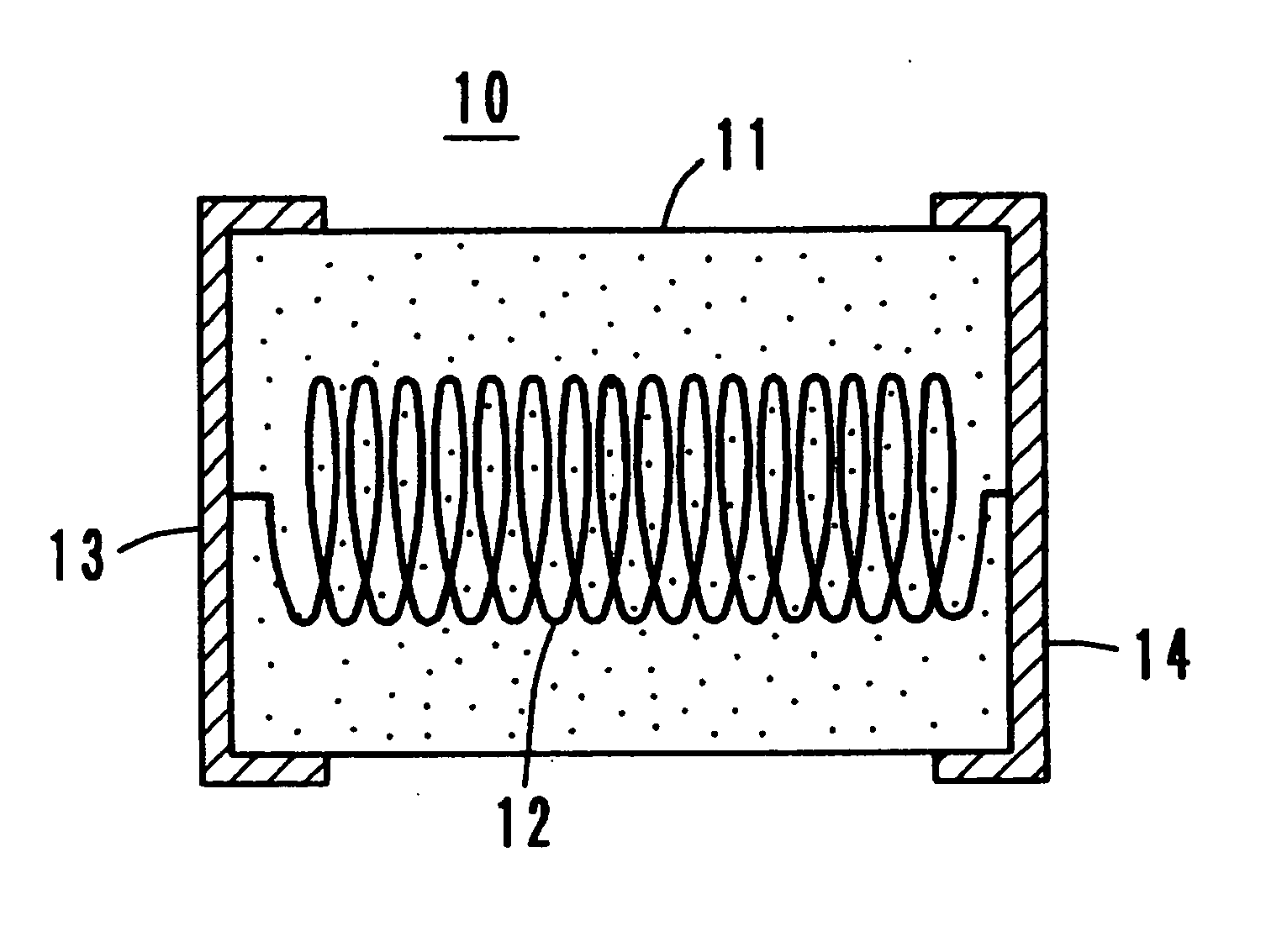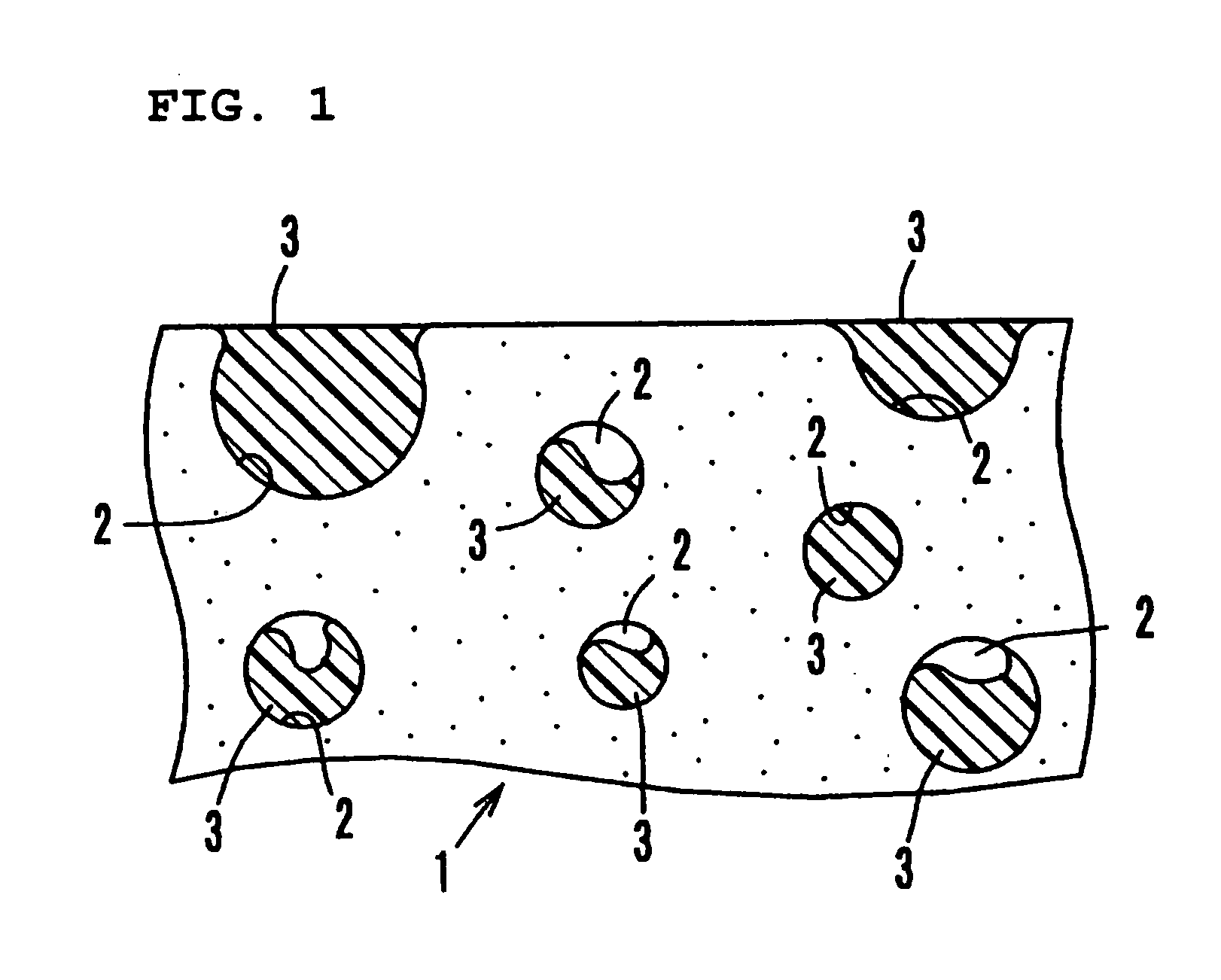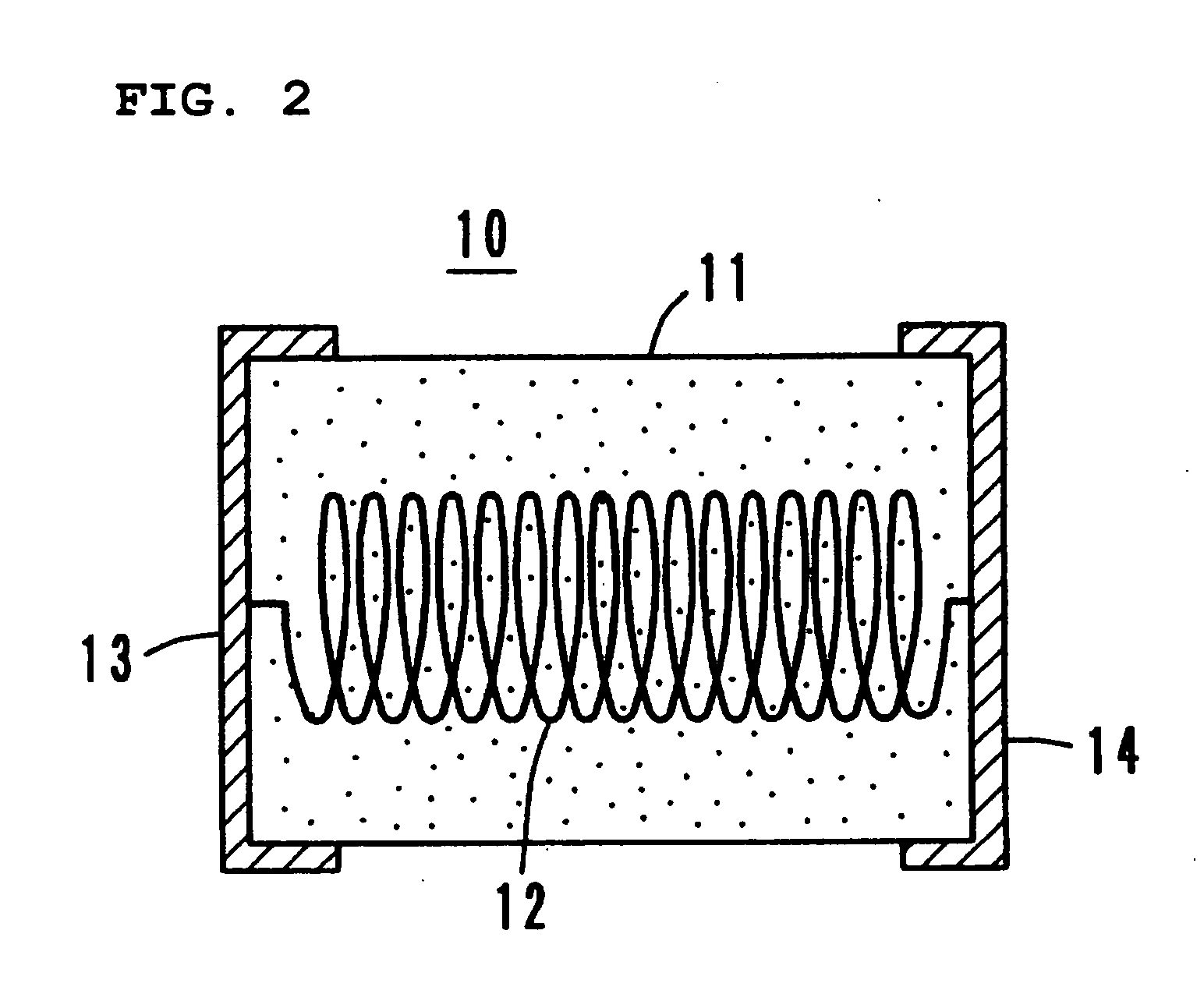Monolithic ceramic electronic component
a technology of electronic components and monolithic ceramics, applied in the direction of fixed capacitor details, magnetic bodies, fixed capacitors, etc., can solve the problem of difficult to reach magnetization saturation, achieve low dielectric constant, improve impedance characteristics, and reduce variations in electromagnetic characteristics
- Summary
- Abstract
- Description
- Claims
- Application Information
AI Technical Summary
Benefits of technology
Problems solved by technology
Method used
Image
Examples
Embodiment Construction
[0028] A preferred embodiment of a monolithic ceramic electronic component according to the present invention will now be described below with reference to the drawings.
[0029] Referring to FIG. 1, a sintered ceramic constituting the monolithic ceramic electronic component will be described.
[0030] A plurality of pores 2, which are filled with a resin 3, are provided in a sintered ceramic 1. The pores 2 preferably have an average diameter of about 5 μm to about 20% m. The pores 2 also have two structures, that is, open pores and closed pores. The sintered ceramic 1 preferably has a porosity of greater than about 30 percent and less than about 80 percent by volume. In the monolithic ceramic electronic component according to a preferred embodiment of the present invention, at least approximately 40 percent of the total volume of the pores 2 are filled with the resin 3.
[0031] To evaluate the effect of the pores and the resin, samples 1 to 6 (chip inductors) were manufactured. Sample 1...
PUM
| Property | Measurement | Unit |
|---|---|---|
| porosity | aaaaa | aaaaa |
| diameter | aaaaa | aaaaa |
| dielectric constant | aaaaa | aaaaa |
Abstract
Description
Claims
Application Information
 Login to View More
Login to View More - R&D
- Intellectual Property
- Life Sciences
- Materials
- Tech Scout
- Unparalleled Data Quality
- Higher Quality Content
- 60% Fewer Hallucinations
Browse by: Latest US Patents, China's latest patents, Technical Efficacy Thesaurus, Application Domain, Technology Topic, Popular Technical Reports.
© 2025 PatSnap. All rights reserved.Legal|Privacy policy|Modern Slavery Act Transparency Statement|Sitemap|About US| Contact US: help@patsnap.com



